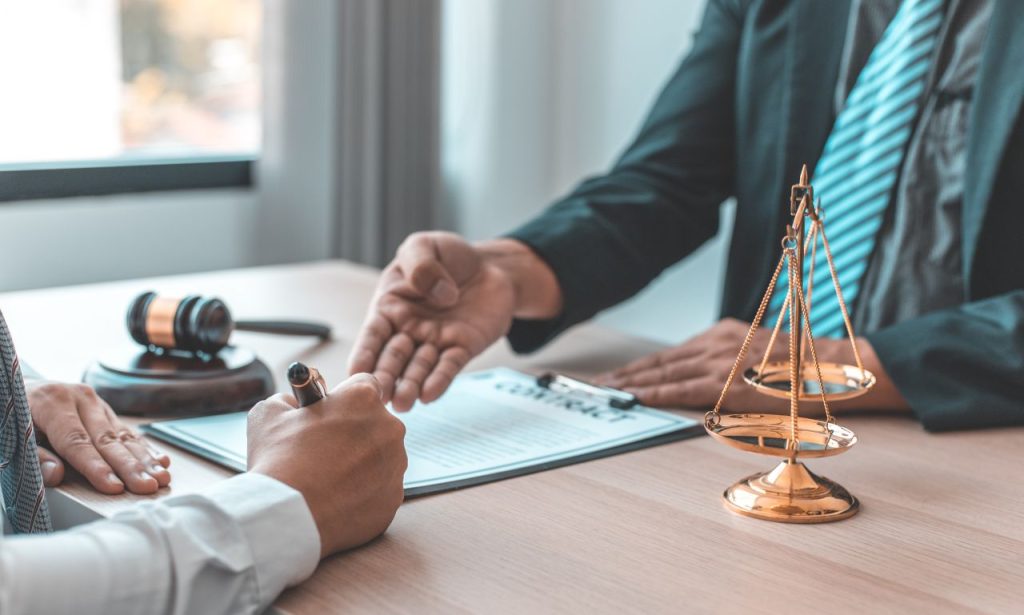Getting that phone call that someone you care about has been arrested can make you panic. Your heart races, your mind floods with questions, and you’re suddenly thrown into a legal system you may know little about. I’ve seen this scenario play out countless times, and the first few hours are critical. Taking the proper steps immediately can make a significant difference in the outcome of your loved one’s case.
The criminal justice system can be intimidating and confusing, especially when emotions run high. Many people make costly mistakes simply because they don’t know what to do next. This guide will walk you through the essential steps to take when someone close to you is arrested, giving you a roadmap during an otherwise chaotic time. Let’s break down exactly what you need to do, step by step.
Gather Information
The moment you learn about the arrest, start collecting as much information as possible. This might sound obvious, but you’d be surprised how many people miss crucial details in the heat of the moment. Ask specific questions about where your loved one is being held. Is it the county jail, police station, or another facility? Each location may have different procedures and visiting hours.
Find out what charges they’re facing. Are they misdemeanors or felony charges? The severity of the charges will impact everything from bail amounts to potential sentencing. Don’t just accept vague answers like “they’re in trouble.” Press for specifics because your next steps will depend on this information.
Also, try to learn the arrest number or booking number if possible. This identifier will help you track your loved one through the system and can speed up communications with jail staff. The police agency involved matters too – was it city police, county sheriff, or federal agents? Different agencies follow different protocols.
I once worked with a family who spent hours calling the wrong detention center because they didn’t get complete information. Those wasted hours could have been used to arrange legal representation instead.
Hire an Experienced Criminal Defense Attorney Near You

Nothing will impact the outcome of your loved one’s case more than quality legal representation. Don’t wait – start looking for a criminal defense attorney immediately. Many defense attorneys offer emergency consultations specifically because they understand the time-sensitive nature of arrests.
Look for lawyers who specialize in the specific type of charges your loved one faces. A DUI attorney might not be the best choice for drug charges, and vice versa. Experience matters tremendously in criminal defense. Attorneys who regularly practice in the courthouse where your loved one’s case will be heard are familiar with the judges, prosecutors, and local procedures.
When contacting attorneys, ask about their experience with cases similar to yours. Good criminal defense lawyers will be honest about potential outcomes and strategies. They should explain things in terms you understand, not legal jargon designed to confuse you. Your gut feeling matters here – you need someone who makes you feel confident in their abilities while being realistic about the situation.
Most importantly, don’t fixate solely on cost. The cheapest attorney isn’t always the best value. Consider what’s at stake – your loved one’s freedom, future employment opportunities, and reputation all hang in the balance. A reasonable defense attorney is an investment, not an expense.
Post Bond
After an arrest, your loved one will typically remain in custody until they can post bail. Think of bail as a financial guarantee that the defendant will return for future court appearances. The amount varies widely depending on the charges, criminal history, and local regulations.
There are several ways to handle bail. If you have the financial means, you can post the full amount directly with the court. This money gets returned at the end of the case (minus administrative fees), regardless of the verdict. For many families, however, the full bail amount is out of reach.
This is where bail bond agents come into play. A licensed bail bond agent will post the full bail amount in exchange for a non-refundable fee, typically 10-15% of the total bail. While this means you won’t get that fee back, it requires significantly less money upfront. Some bail bond companies also accept collateral, such as property or vehicles.
Consider the bail terms carefully. Sometimes, courts impose conditional bail, requiring things like drug testing, travel restrictions, or wearing an electronic monitoring device. Make sure your loved one understands these requirements thoroughly. Violating bail conditions can result in immediate return to jail and forfeiture of the entire bail amount.
Attend the Arraignment
The arraignment is your loved one’s first formal court appearance, and it’s crucial. During this initial hearing, the judge formally presents the charges, asks how the defendant pleads, and may revisit bail conditions. Having an attorney present for this hearing can dramatically change the outcome.
If you haven’t secured legal representation by this point, the court will typically assign a public defender. While these attorneys are often dedicated professionals, they carry enormous caseloads and may have limited time to prepare. This is why hiring a private defense attorney before the arraignment is so valuable.
Family members should attend the arraignment if possible. Your presence shows the court that the defendant has community support and connections, which can positively influence bail decisions. However, understand that this is not the time to address the court unless the judge specifically invites you to do so.
Take detailed notes during the arraignment. Record all future hearing dates, document any instructions from the judge, and write down any questions you have for the attorney afterward. The legal process involves many deadlines and requirements – missing any of them can severely damage your loved one’s case.
What to do When your Loved One Gets Arrested?
The first 24 hours after an arrest are often the most critical. Beyond the steps we’ve already covered, there are some practical matters to address. First, secure your loved one’s personal belongings. When someone is arrested, their car might be left at the scene or impounded. Their home might need to be locked up, pets fed, or employers notified of absence.
Next, be extremely careful about discussing the case over jail phones or during visits. These communications are monitored and can be used as evidence. Tell your loved one not to discuss the details of their case with anyone except their attorney. This includes cellmates, friends, and even family members. A casual comment can become damaging evidence later.
Consider your loved one’s mental health during this time. Jail environments are stressful and can exacerbate existing conditions. If they require medication, work with the attorney to ensure jail staff are aware of these needs. Many jurisdictions now offer jail diversion programs for those with mental health issues, but these options must be pursued quickly.
Finally, gather documents that might help the attorney build a defense. These could include alibi information, medical records, or evidence of good character. The more organized you are, the more effectively your attorney can work.
What Do You do When Someone Has Been Arrested?
Beyond the immediate legal steps, there are practical ways to support someone who’s been arrested. Establish a reliable communication system. Find out the jail’s policy on phone calls and visits. Some facilities use special apps or services, like “Jail Mail,” that allow for digital communication. Set up these accounts immediately.
Create a support network. Designate different responsibilities among family members or friends. Perhaps one person handles legal communications, another manages finances, and someone else takes care of the arrested person’s household. This approach prevents any single person from becoming overwhelmed.
Document everything. Keep a journal of all interactions with the legal system, including who you spoke with, when, and what was discussed. Save all paperwork, receipts, and correspondence. This documentation can prove invaluable if disputes arise later or if you need to demonstrate compliance with court orders.
Take care of yourself during this process. Supporting someone through the criminal justice system is emotionally and physically draining. You cannot be effective if you’re running on empty. Seek support groups, consider counseling, and take care of your health.
What to do if Your Adult Child is Arrested?

Parents face unique challenges when an adult child is arrested. The balance between support and enabling can be challenging to navigate. Your first instinct might be to solve everything for them, but remember that as adults, they must take responsibility for their actions.
Provide emotional support without judgment. Your child must know you’re there for them, even if you don’t condone their alleged actions. This distinction is crucial for maintaining a healthy relationship through the legal process.
Consider your financial limits carefully. While you may want to help with legal fees or bail, don’t put yourself in financial jeopardy. Be honest about what you can and cannot provide. Sometimes the best support is helping them find resources rather than being the resource yourself.
If addiction or mental health contributed to the arrest, this might be the opportunity to address these underlying issues. Many courts favor defendants who proactively seek treatment. Research treatment options and discuss them with the attorney to see if they could be incorporated into the defense strategy.
Can I Call Someone Who Just Got Arrested?
Generally, you cannot call someone who has just been arrested. The communication flow works in the opposite direction – they must contact you. When someone is booked into jail, they are typically allowed one or more phone calls, but they must initiate these calls themselves.
When they do call, understand that the conversation is not private. Jail calls are recorded and monitored. Never discuss details of the alleged crime, potential defense strategies, or anything that could be incriminating. Keep conversations focused on practical matters and emotional support.
Some jails have video visitation systems that require scheduling in advance. Learn the facility’s policies and schedule these visits as soon as possible. Personal contact, even through a video screen, can tremendously reassure someone in custody.
Conclusion
Navigating the aftermath of a loved one’s arrest requires quick action, clear thinking, and reliable information. By gathering essential details, securing experienced legal representation, understanding the bail process, and providing appropriate support, you can significantly improve their chances of a favorable outcome.
Remember that the criminal justice system is complex, but you don’t have to face it alone. Lean on professionals, support networks, and resources designed to help during these difficult times. The steps you take in the hours and days following an arrest can make all the difference in your loved one’s case.
ALSO READ: What are the Major Factors To Consider When Selling Your Business?
FAQs
As soon as possible—ideally within the first 24 hours—early legal representation can protect their rights from the beginning.
Get the facility name, booking number, charges, and upcoming court dates. Ask about their immediate needs.
Yes. Your attorney can file a motion for bail reduction, especially if you can demonstrate community ties and limited financial resources.
Generally, no. Direct all communication through the attorney to avoid potentially complicating the case.
Inform the attorney immediately, and they can communicate with jail staff about necessary medical accommodations.
Contact the clerk of the court in the jurisdiction where the arrest occurred. Most have online systems for checking court dates.


